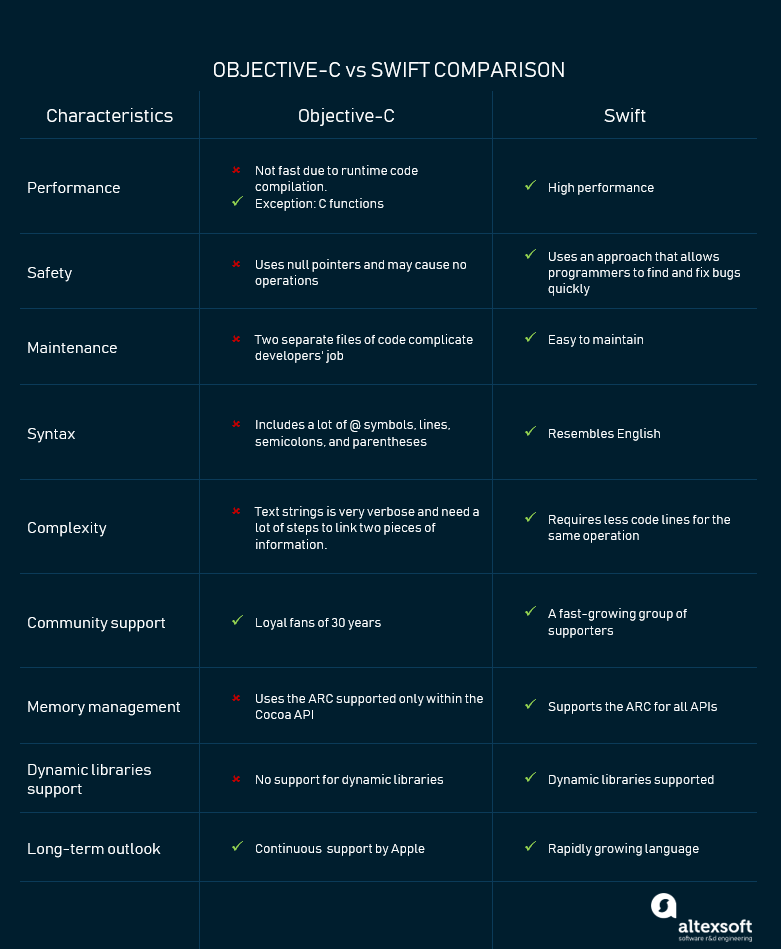
Another good framework for cross-platform development is Xamarin, which offers near-native performance even when targeting iOS. Several excellent cross-platform game engines and frameworks, such as Unity, Godot, MonoGame, OpenTK, Stride, and Wave Engine support C#. Over the past decade, C# has become the darling of indie and mobile game developers. NET garbage collector (GC) for optimal results. Furthermore, C# programmers must learn to tame the. NET ecosystem is undoubtedly complex, with a steep learning curve.
Objective c vs swift share worldwide apple series#
NET that consists of a rather elaborate series of frameworks, runtimes, and SDKs. C# shares many similarities with those two languages and also closely resembles Java. Introduced by Microsoft in 2000, C# was designed by Anders Hejlsberg, the original author of Turbo Pascal and chief architect of Delphi. Apple’s SpriteKit may be handy but not on par with tools available for other languages. But game developers will feel limited with the frameworks and tools available for Swift. As stated earlier, it’s an excellent language for iOS app development.

While Swift massively improves on Objective-C while retaining its core concepts, it’s not without its shortcomings. And unlike Objective-C, the primary focus of Swift is on safety and a dot-notation style using namespaces, bringing it closer to other object-oriented languages such as C# and Java. Introduced in 2014 as an alternative to Objective-C, Swift has gradually surpassed its predecessor in popularity. It’s a powerful multi-paradigm language that’s block-structured, functional, declarative, and object-oriented. The development of the Swift programming language is a collaboration between Apple and various open-source contributors. Below, we reveal the languages that you should consider and their use case. And while you should never judge a programming language by its popularity, it’s still important to ascertain how well it’s adopted and supported by the industry.

A quick look at the TIOBE Index reveals a plethora of languages that are way more popular than either Swift or Objective-C. So if you want to forge ahead with iOS app development without these limitations, you do have plenty of good options available. Furthermore, there are few game development engines and tools that support both these languages. You’ll need to use cross-compilers and translation tools to target non-Apple platforms. And since they’re so experienced in these languages and deeply embedded in Apple’s ecosystem, they may have little need to explore alternatives.īut what if your team wishes to target multiple platforms or develop mobile games? Well, it’s possible to do this using Swift or Objective-C, but it’s not an ideal solution. For example, your team develops exclusively for Apple devices and uses Swift and Objective-C on an ongoing basis. If your team already has a tried and true workflow using one or more programming languages, then it’s a no-brainer. Choosing a programming language for your upcoming iOS project may be an easy or difficult decision.


 0 kommentar(er)
0 kommentar(er)
